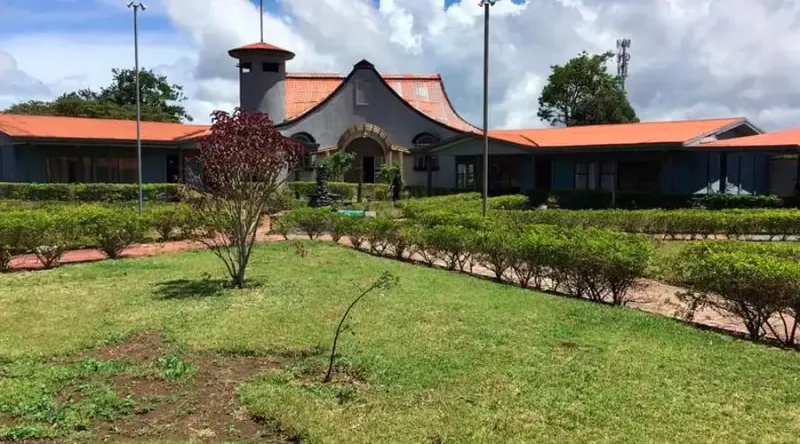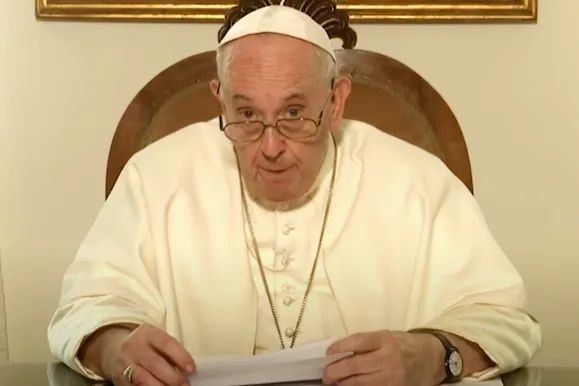 A nun at the prayer vigil for consecrated life in St. Peter’s Basilica, Jan. 28, 2016. / Alexey Gotovskiy/CNA
A nun at the prayer vigil for consecrated life in St. Peter’s Basilica, Jan. 28, 2016. / Alexey Gotovskiy/CNA
Denver, Colo., Dec 24, 2021 / 04:00 am (CNA).
Discerning your vocation is about more than pursuing a celibate vocation alone, said Father Ryan O’Neill, director of vocations for the Archdiocese of Denver. The purpose, he said, is to “increase the knowledge and possibility of vocation for anybody.”
“It gives us all a moment to be like, ‘Oh yeah, I do have a vocation. God does have a plan for my life, and I can find out what that is,” said O’Neill, who was ordained in 2012.
“We should all take a moment to ask, ‘How is discernment part of my daily Christian experience? How are we seeking the Father’s will?’” he said.
Everyone is created for marriage at the natural level because of their biological identity, O’Neill said, but to have a celibate vocation is “a supernatural vocation.”
“You have to pause, and say, ‘Okay, I know I’m created for marriage, but, Jesus, are you calling me to something different?’” O’Neill said.
For those considering a celibate vocation, O’Neill suggested reaching out to a religious order or a local diocese to go on a discernment retreat at the earliest opportunity. If no retreats are immediately available, meet with a priest or religious to talk about your interest in a celibate vocation.
“The first principle is, you cannot drive a parked car,” O’Neill said. “You’ve got to get in the car and you’ve got to drive somewhere. That means don’t sit in your bedroom asking God what He wants. Do something about it.”
O’Neill compared it with the idea of really liking someone, but never mustering up the courage to ask them on a date.
“You’ll never get an answer unless you drive the car in a direction you think you should go,” he said.
Reaching a “dead end” where the answer is “no” is okay, O’Neill said, especially on the first try. If you encounter a “no,” either from a spiritual director or in your own discernment, it does not mean you are not meant for a celibate vocation—it may mean that you need to try a couple communities before finding the right place.
“We have this pressure to find the right answer and to make sure it’s the exact fit, and that’s just not real,” he said. “The world works by you going out and driving into a dead end, being okay with it, and saying, ‘I found an answer, now I turn around and I go back the direction I came, and I go a different direction.’”
As a practical tip for discerning a celibate vocation, O’Neill suggested increasing the amount of time you spend in prayer and learning the Liturgy of the Hours, both of which, he said, will increase your relationship with Jesus.
“It’s only going to be beneficial if you spend more time in prayer,” he said. “If your life is going to be centered around a relationship with Jesus as a religious sister, as a priest, or as a religious brother, why would you not start working on that relationship now?”
O’Neill also said that it is important to not be actively dating when you are discerning a celibate vocation because it can cause additional stress and confusion.
“Either you are going to direct your heart toward marriage, or you’re going to direct it away from marriage, but to do both is actually torturous for your own heart,” he said. “Allow yourself to focus on one thing at a time. Let your heart relax in whatever direction you are focusing on.”
One of the greatest joys of O’Neill’s vocation as a priest, he said, is the freedom to seek what God wants.
“Our world puts so much pressure on young people to have it all figured out, to have a 5-year plan, a 10-year plan,” O’Neill said. “All those things really bore down upon me when I was in college until I was given permission by a priest to let all those things go, and say, ‘Jesus what do you think?’ and ‘Jesus what do you want?’”
“When I focused on that I felt more free than I ever had before, and I began to understand that that’s really what God wants. God wants us to have an experience of freedom,” he said.
Both marriage and celibate vocations are good things, O’Neill said, and each has a different kind of intimacy, whether that be spiritual intimacy with Christ or physical intimacy with your spouse.
“It’s okay to not get married for the sake of Jesus,” O’Neill said. “Marriage is good, but so is being celibate. What is your heart longing for?”
[…]






